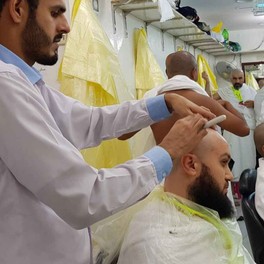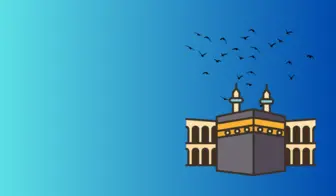Why is hair cut during Umrah?

Why Is Hair Cut During Umrah?
The Spiritual Meaning of Hair Cutting in Umrah
Umrah is one of the most heartfelt spiritual journeys in Islam. Visiting the Kaaba, performing the tawaf, walking between Safa and Marwah (sa’i), and finally cutting the hair mark the steps of this journey. But why is the ritual of cutting or shortening hair—tahallul—such an essential part of Umrah? Is it merely symbolic, or does it carry deeper spiritual meaning?
1. The Religious Ruling and Scriptural Basis
Hair cutting marks the completion of Umrah and signifies release from the state of ihram. The Qur’an makes reference to this in the following verse:
“You will enter Al-Masjid al-Haram in safety, if Allah wills, with your heads shaved or hair cut short…”
(Surah Al-Fath, 48:27)
This verse establishes that hair cutting is a ritual act tied to the conclusion of pilgrimage. Additionally, Prophet Muhammad (peace be upon him) instructed his companions during Hajj to shave or shorten their hair, solidifying it as a Sunnah.
2. Symbolic and Spiritual Significance: Purification and Rebirth
Hair cutting in Umrah is not a mere grooming activity—it is a symbol of inner transformation. Entering ihram is a symbolic departure from worldly identity, ego, and social status. Cutting the hair at the end of Umrah represents the peak of this purification process.
Hair is an expression of one's physical identity and beauty. Letting go of it is like saying,
“O Allah, I let go of my ego and outward image—for You.”
This act becomes a form of spiritual rebirth—a statement of humility and complete surrender.
3. Taming the Ego (Nafs)
The human ego (nafs) is naturally attached to appearance, pride, and self-image. Cutting the hair challenges these attachments and teaches discipline:
-
It humbles the self,
-
It detaches from worldly vanity,
-
It teaches sincerity in worship.
By submitting to this small yet meaningful act, a pilgrim learns to conquer pride and self-centeredness.
4. The Prophet’s Du’a (Supplication) and Its Reward
Prophet Muhammad (peace be upon him) made a special du’a (prayer) for those who shaved their heads:
“May Allah have mercy on those who shave their heads.”
The companions asked, “And those who cut their hair short, O Messenger of Allah?”
He repeated, “May Allah have mercy on those who shave their heads.”
After being asked a third time, he added: “And those who shorten their hair as well.”
(Bukhari, Hajj, 132)
This shows that shaving the head is more virtuous, though shortening the hair is also rewarded—especially for women, who are only required to cut a small portion of their hair due to modesty considerations.
5. Social and Personal Impact
Cutting the hair changes the pilgrim’s physical appearance, which reflects an inner transformation. Often, friends and family notice this change as a visible sign of spiritual renewal. It becomes a badge of honor and a symbol of having completed a sacred act of worship.
Conclusion: The Crownless Crown
Cutting one's hair in Umrah is like wearing a crown of humility. The pilgrim sheds outward adornment to embrace the light of sincerity and devotion. It marks not just the end of the ritual but the beginning of a deeper spiritual path.
In Summary:
-
Religious basis: Cutting the hair is a required step to complete Umrah.
-
Spiritual meaning: A sign of purification, surrender, and rebirth.
-
Prophetic tradition: Highly rewarded and emphasized by the Prophet.
-
Societal reflection: A symbol of transformation and humility.
Other Contents

